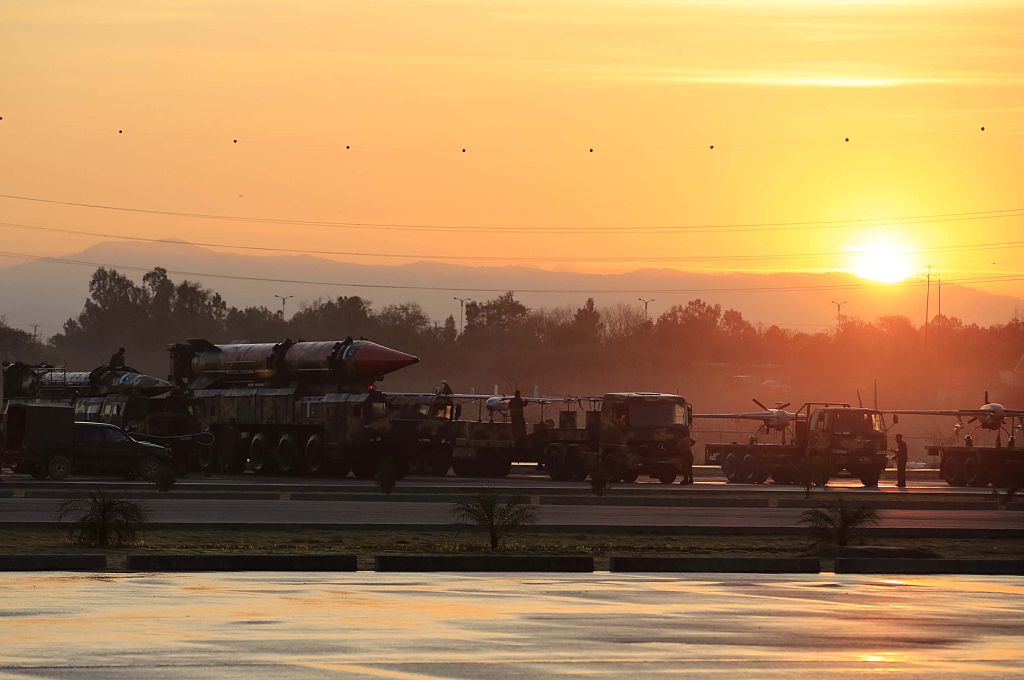After over 130 Iran-backed proxy attacks on US military forces in Syria and Iraq, the Biden administration fights back with pin-prick responses. After just one attack, Pakistan responds with an air strike on a terrorist camp in Iran. It would seem that Pakistan is not cowed by Iran and doesn’t much care about escalating the conflict. There’s a lesson to be learned there by the current administration – but is Biden watching?
Pakistan Caught Iran Off Guard
Unlike the Biden administration, which waited before responding to attacks by Iran’s proxies until public opinion left no other choice, Pakistan retaliated quickly to the unprovoked and surprise airstrike on what Iran called a “militant training camp.” According to Islamabad, only civilians were killed in the air assault – the response came almost immediately. Pakistan’s foreign affairs ministry said that the country had conducted “precision military strikes” against alleged terrorist hide-outs in southeastern Iran.
 No doubt taken aback by the rapid retaliation, “[T]he [Iranian] Foreign Ministry also appeared to try to defuse tensions. It referred to Pakistan as a friendly neighbor,” The New York Times reported.
No doubt taken aback by the rapid retaliation, “[T]he [Iranian] Foreign Ministry also appeared to try to defuse tensions. It referred to Pakistan as a friendly neighbor,” The New York Times reported.
Tehran had claimed the attack on Pakistan was meant to discourage a terrorist group’s plan to cross the border to carry out an attack in Iran. Reports on the exchange of air strikes between the two Middle Eastern nations have conflated this incident with a wider escalation of hostilities resulting from the Israel-Hamas war. Though that might be a convenient narrative, when the tit-for-tat attacks by Iran and Pakistan are evaluated for what they really are, there is no direct connection to a larger regional scenario.
What Iran wants its neighboring allies and internal constituency to believe is that the governing mullahs in Tehran are upholding the “axis of resistance” standard. This thinking gives them and their proxies an expanded remit to support aggression by Iran-sponsored Iraqi militias attacking US military bases and outposts in Syria and Iraq. Additionally, it suggests that whatever Iran does is in response to widening conflict in the region underpins a perverse legitimacy for support to Iran-backed Houthi terrorists attacking commercial merchant vessels in the Red Sea and the strait of Bab Al-Mandab.
A somewhat different take on the attack against Pakistan suggests a willingness on the part of Iran to eschew using proxies to flex its military muscle. Joel Rayborn, a former special envoy to Syria, told The Wall Street Journal: “It’s a message to the US and Israel. It demonstrates [Iran’s] willingness to get directly involved as opposed to proxies.” However, as the WSJ pointed out, “Iran’s military tested and found a limit to its ability to project power this week as Pakistan responded to a missile attack with the first publicly acknowledged airstrike on Iranian territory in decades.” Taking on Pakistan carries with it a certain disproportionality between the two countries that should inspire caution not to antagonize Islamabad. Pakistan has nuclear weapons; Iran does not.
Biden Can Learn an Important Lesson
From a broader regional perspective, there is a lesson for the Biden administration in the Iran-Pakistan exchange of air attacks. Iran is not accustomed to direct retaliation for its bad behavior demonstrated through proxies. Consequently, there are a number of actions Biden’s national security team could consider. For example, when the next Iran-backed proxy group attacks American military ground forces, US Navy warships, or international merchant vessels, it will be cause for immediate retaliation. While still attacking the Iran-backed Houthi terrorists, a US military response might include destroying one of Iran’s submarines. Having and operating submarines shows the world Iran is able to play with the big boys. Having one less would send a clear message to Tehran to give up the proxy war against the US and the West.
The Biden national security team has consistently shown a reluctance to make such a strong statement. The White House telegraphs a fear of widening the Israel-Hamas conflict across the region, despite demonstrable evidence a wider conflict already exists. More likely, what the Biden administration is afraid of is creating a situation in which Russia or China believes it is obliged to engage in defense of Iran. It’s a legitimate concern – but the likelihood that the Kremlin or Beijing would commit forces to aid Iran is remote. Both Russia and China have bigger fish to fry in Ukraine and the South China Sea, respectively. Pakistan smacked Iran quickly and decisively. Iran backed off. The US and the West should take note.
The views expressed are those of the author and not of any other affiliation.




